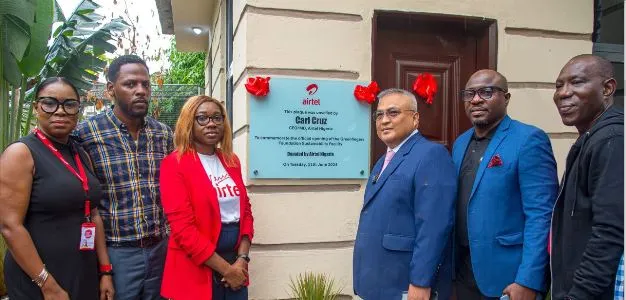Airtel Nigeria has reaffirmed its dedication to promoting sustainability and expanding educational access across the country. Speaking on behalf of Airtel’s Chief Executive Officer, Sam Adeoye, Head of Public Relations at Airtel, emphasized the company’s ongoing efforts to create positive environmental and societal change, noting the crucial role the media has played in supporting these initiatives.
Adeoye highlighted that Airtel’s sustainability strategy revolves around key pillars such as energy transition, reducing its carbon footprint, and enhancing Corporate Social Responsibility (CSR) initiatives. These efforts align with the United Nations’ Sustainable Development Goals (SDGs), demonstrating Airtel’s commitment to addressing global challenges. He also acknowledged the unique difficulties Africa faces, particularly its reliance on oil and gas, but reiterated Airtel’s resolve to drive progress that benefits both the environment and society.
One of Airtel’s most significant projects, according to Adeoye, is its ongoing partnership with UNICEF, which focuses on improving access to education in public schools throughout Nigeria. Initially, Airtel supported 900 schools, but that number has since grown to approximately 1,280. The company aims to extend its support to an additional 300 schools by the end of the financial year. This collaboration, facilitated through the Federal Ministry of Education, provides students and teachers with free access to learning platforms, such as the Nigerian Learning Platform and Global Africa, without data charges. This initiative is part of Airtel’s broader goal of reaching one million children across Africa within five years, with two million children in Nigeria targeted for support.
On the environmental front, Ismail Adeshina, Airtel’s Director of Marketing, discussed the company’s efforts to reduce its dependence on diesel-powered generators, which currently consume around 22 million litres of diesel each month across 15,000 sites in Nigeria. This reliance has contributed to significant operational costs and a large carbon footprint. To address this, Airtel is transitioning its sites to grid power and incorporating solar energy solutions. This shift not only reduces costs but also helps to lower harmful emissions, advancing Airtel’s sustainability agenda.
Adeshina further stressed that sustainability is embedded in Airtel’s culture, and the company is committed to making environmentally responsible practices a part of everyday life for its employees and the communities it serves. He highlighted that Airtel’s focus on education, environmental responsibility, and technological advancement continues to set a high standard for corporate sustainability in Nigeria and beyond.
In line with these goals, Airtel’s Chief Technology Officer (CTO), Harmanpreet Singh Dhillon, reaffirmed the company’s commitment to delivering advanced technology and exceptional customer service. Dhillon stated that Airtel remains focused on providing innovative solutions that improve customer experience, speed, and connectivity. He emphasized that Airtel has made significant progress in enhancing the latency experience and is a leader in implementing cloud-native environments, furthering its goal to revolutionize telecommunications in Nigeria.





